Photographs: Courtesy, NaMo Games. BS Reporter in New Delhi
Moody's Analytics, the research and analysis arm of the global investment and ratings agency, on Wednesday said a Narendra Modi-led Bharatiya Janata Party government was likely to mean better economic management.
“If elected, a Modi-led BJP government should offer a more business-friendly policy that will further support confidence and investment,” Moody's Analytics said in a report.
...
Modi-led govt better for Indian economy: Moody's
Photographs: Reuters
It said early polls suggested the BJP would win the largest number of votes and seats, giving it the opportunity to form a government. It was cautious, though, on this front.
"Modi faces challenges in attracting non-Hindu votes and may have difficulty forming a minority government with small parties," said Glenn Levine, senior economist.
...
Modi-led govt better for Indian economy: Moody's
Photographs: Reuters
He added, however, that Modi's record as chief minister of Gujarat suggested he could overcome these obstacles.
The report said the central government had been a millstone around the economy’s neck through the second term of the Congress-led coalition (2009 to 2014).
The analysis was, however, silent on the emergence of the Aam Aadmi Party or the formation of any third front.
...
Modi-led govt better for Indian economy: Moody's
Photographs: Reuters
Moody's Investors Service, the rating wing of Moody's group, had last week cautioned the outcome of the coming Lok Sabha polls could affect India's growth, depending on how it impacted sentiment and policy.
CRISIL, another leading rastings agency, also issued a report on Wednesday in this regard but did not name any political party or leader. It said the next financial year could be one of new leadership and old challenges.
...
Modi-led govt better for Indian economy: Moody's
Photographs: Reuters
"The outcome of general elections in May could swing the medium-term growth outlook either way. Political uncertainty is, therefore, a huge weight on the economy at this juncture," it added.
On overall growth, Moody's Analytics said downside risks to India's economic growth had receded.
"There is a growing list of reasons to believe the Indian economy has started to turn the corner, albeit slowly, after two and a half years of sub-par growth," the report said.
...
Modi-led govt better for Indian economy: Moody's
Photographs: Reuters
Economic growth had stabilised and down side risks had fallen, it said,. This year, the economy should perform better than in 2013, but it would be a long while before the economy was again growing at its potential.
On the falling of downward risks, it included the rupee’s value as less vulnerable to the US Federal Reserve’s bond-buy tapering than in 2013.
...
Modi-led govt better for Indian economy: Moody's
Photographs: Reuters
Moody's Analytics predicted the economy would grow 5-5.5 per cent through 2014, before heading north of six per cent in 2015.
The pace was, however, likely to be slow and a bit frustrating for businesses and policy makers.
"There are no quick fixes to the current malaise but an improving global environment, fewer downside risks and better policies at home should help to lift confidence and demand," Levine said. The upturn would be led initially by exports, which started to rise from mid-2013, and in 2014, by an upturn in the investment cycle, he added.
...
Modi-led govt better for Indian economy: Moody's
Photographs: Reuters
CRISIL projected the economy would grow 4.8 per cent in the current financial year and six per cent in 2014-15.
India's economy grew by below five per cent in four straight quarters till July-September 2013-14.
The growth fell to a decadal low of five per cent in 2012-13; it is expected to remain at that level or a bit low in the current financial year.

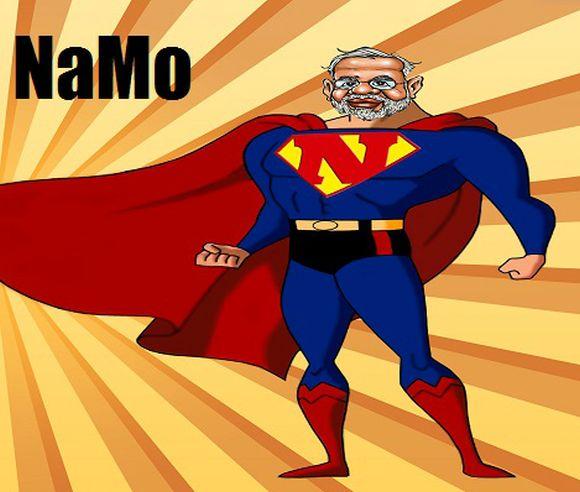
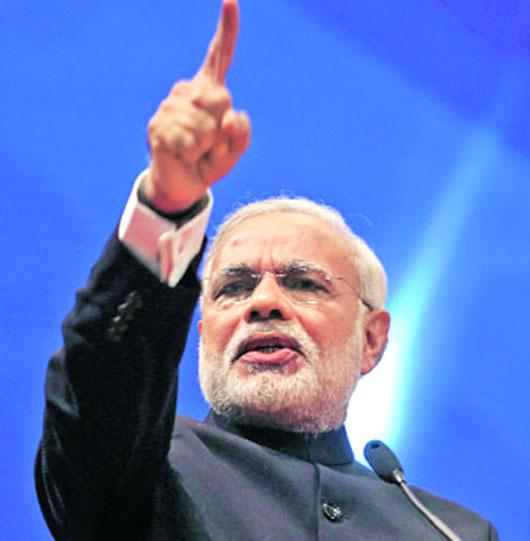
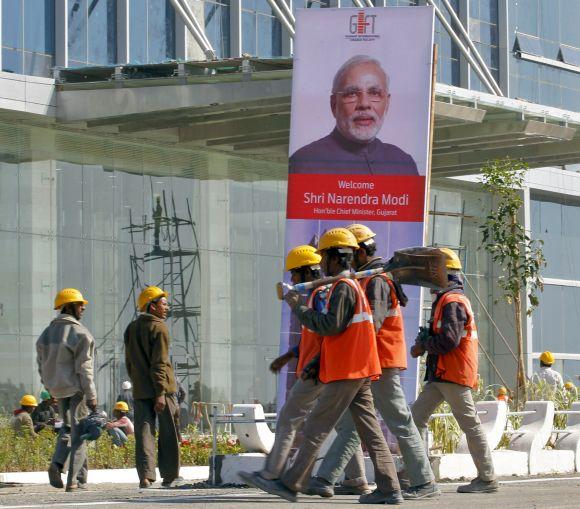
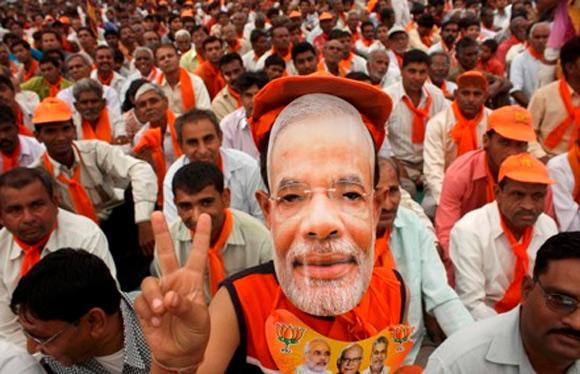
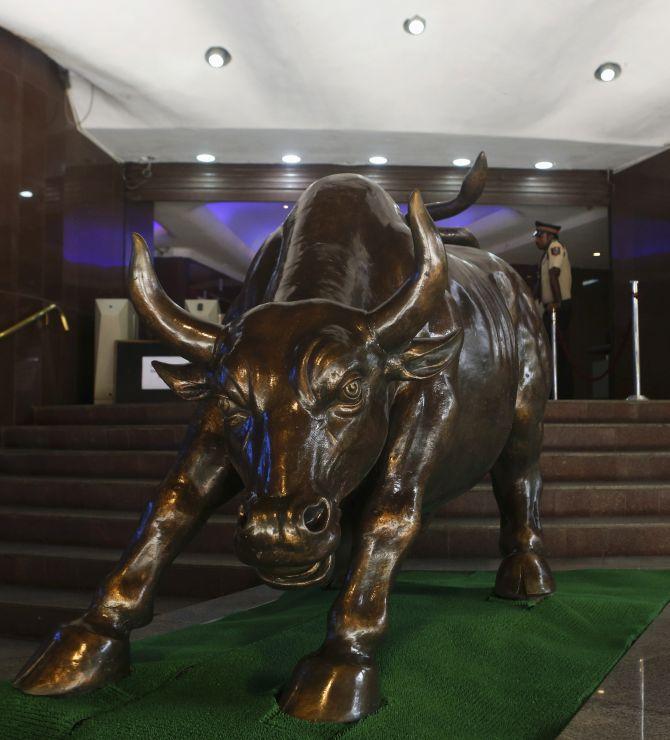
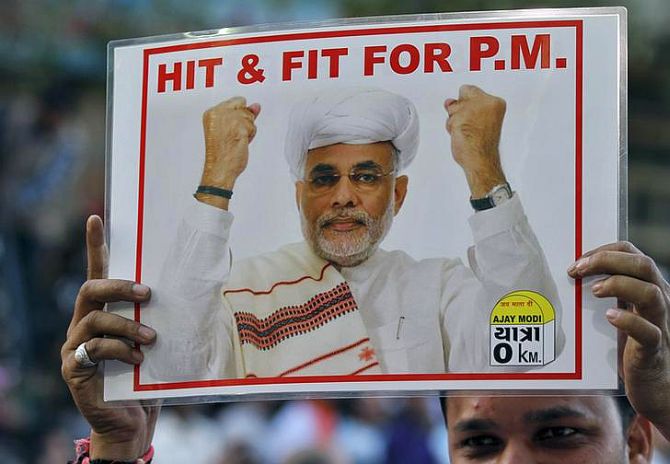

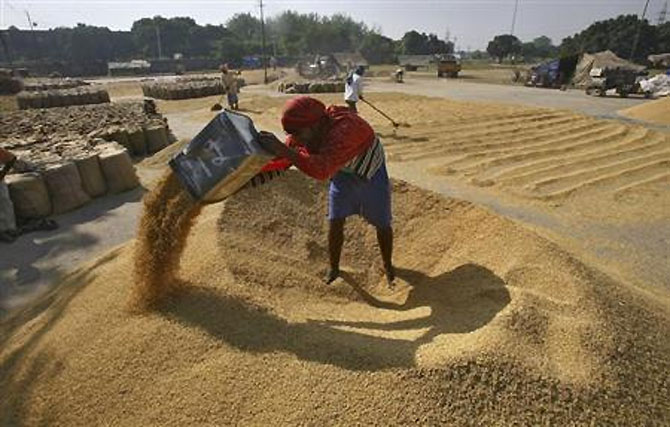

article